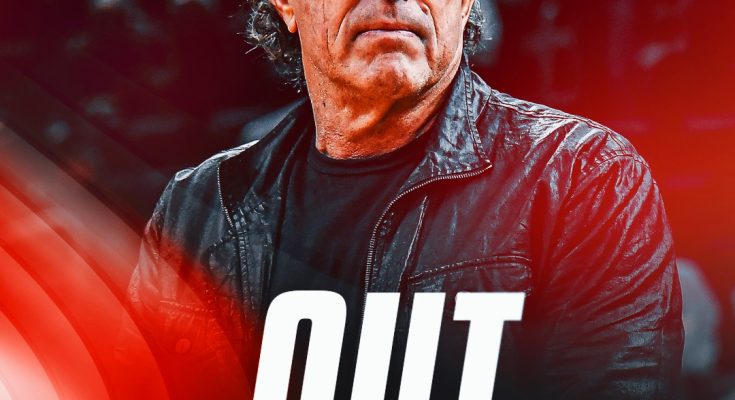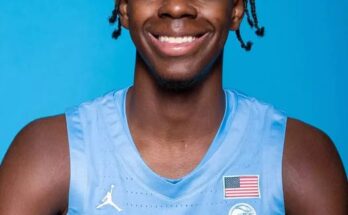The Boston Celtics have reached a transformative juncture in their long and illustrious history. The team has been sold for a record-breaking \$6.1 billion, marking one of the most expensive transactions in the history of American professional sports. Alongside the financial headline comes a major shift in leadership, as Wyc Grousbeck—who has served as the team’s controlling governor since 2002—will no longer retain that title. His successor is Bill Chisholm, a Massachusetts-based investor and lifelong Celtics fan, who now steps into the role of governor and controlling owner of the franchise. This transition represents both the end of an era and the beginning of another for one of the NBA’s cornerstone franchises.
Grousbeck’s departure from the governor role marks the conclusion of more than two decades of leadership. In 2002, he led a consortium known as Boston Basketball Partners in purchasing the team for \$360 million, a figure that now seems modest in light of the current valuation. Under his stewardship, the Celtics experienced a renaissance. His tenure saw Boston win two NBA championships—one in 2008 and another in 2024—and remain a consistent presence in the playoff picture. Grousbeck was known for his blend of passion, pragmatism, and commitment to organizational stability. He kept the team competitive, fostered a strong front office, and forged a relationship with Celtics fans that was built on trust and shared ambition.
The sale to Chisholm was first announced in March 2025, and at the time, it was reported that Grousbeck would remain as governor and CEO through the 2027–28 season. This transition plan appeared to reflect a desire for continuity. Chisholm, described as a committed Celtics fan and a thoughtful investor, was positioned as a fitting successor—someone who could carry on the legacy while bringing in new energy and financial acumen. The original structure of the deal granted Chisholm a 51 percent stake, making him the majority owner. By 2028, the plan was for him to acquire additional equity and take full control.
However, despite the initial timeline, the pace of transition accelerated. In August 2025, it was reported that Grousbeck would relinquish his title as governor sooner than planned, immediately following the finalization of the sale. Though he will remain as CEO and alternate governor, the governing authority and day-to-day leadership of the team will now belong to Chisholm. This abrupt adjustment came as a surprise to many, especially considering Grousbeck’s public statements about remaining closely involved until the end of the decade.
The reasons behind the accelerated transition are still the subject of speculation. Some reports have pointed to internal friction, particularly involving payroll strategy and luxury tax implications. The Celtics, after all, are facing one of the highest payrolls in NBA history, with projections estimating their tax bill could exceed \$500 million in upcoming seasons. Disagreements between Grousbeck and other stakeholders—including his father, Irving Grousbeck, who also holds a significant share of the team—may have influenced the decision to fast-track the change in leadership. There were also concerns over how the team would approach roster management in light of increasing financial pressure and potential luxury tax penalties.
Adding to the complexity of the transition were questions about Chisholm’s financial backing. It emerged that his bid was supported in part by capital from a private equity firm, raising eyebrows among analysts and fans alike. NBA rules restrict private equity firms from holding a controlling interest in any franchise, and Chisholm was required to meet specific ownership thresholds to qualify as the primary owner. While the league ultimately approved the transaction, it drew attention to the increasingly intricate and financially engineered nature of modern sports ownership. Concerns about the influence of private equity in professional sports, and its potential impact on team decision-making and spending, remain part of the broader conversation.
For the fan base, the news was met with a mix of emotions. On one hand, there was gratitude for everything Grousbeck had done during his tenure. He restored pride to the franchise, built a culture of accountability and excellence, and helped deliver championships in two different decades. On the other hand, the sudden shift in control left some feeling uneasy, particularly given the uncertainty about how Chisholm would manage the team. Would he maintain the franchise’s long-standing commitment to competitiveness and tradition? Or would financial constraints begin to dictate roster moves in ways that undercut the Celtics’ ability to contend?
Chisholm has publicly emphasized that he shares the values and aspirations that have long defined the Celtics. He has expressed admiration for the work done by Grousbeck, team president Brad Stevens, and head coach Joe Mazzulla, and has stated his intention to maintain the team’s championship-caliber expectations. According to those familiar with his thinking, Chisholm views the Celtics not just as an investment, but as a responsibility—one that extends to the city of Boston, the fan base, and the legacy of the team’s seventeen championships.
What lies ahead is a crucial test of that commitment. The Celtics are in a pivotal phase. With Jayson Tatum sidelined due to an Achilles injury and questions swirling around the futures of Kristaps Porziņģis and Jrue Holiday, the team faces short-term roster uncertainty. How the new ownership navigates these challenges will reveal much about Chisholm’s priorities and long-term vision. Will he be willing to absorb massive luxury tax bills to preserve a championship window? Will he support a rebuild if it becomes necessary? Or will he steer the franchise toward a more financially cautious path?
The broader implications of the sale go beyond Boston. This transaction highlights the escalating valuations of NBA teams and the growing role of financial institutions in ownership structures. That a franchise could be worth over \$6 billion speaks to the NBA’s global reach, media rights value, and branding power. Yet, it also invites questions about how such valuations affect competitive balance and accessibility. As teams become more expensive, fewer individuals can afford to own them outright, and corporate or institutional ownership becomes more common. This may change the relationship between teams and their communities—subtly or significantly.
In Grousbeck’s case, his ownership was rooted in a personal and familial connection to Boston. His leadership style, while certainly informed by business acumen, was also shaped by emotional investment. He was present at games, involved in major decisions, and deeply committed to both winning and maintaining the culture of the Celtics. Whether that same blend of passion and stewardship will continue under Chisholm remains to be seen. The two men have worked closely during the transition period, and Grousbeck will remain in a supporting role until 2028, offering institutional knowledge and mentorship.
Yet, even with that continuity, the symbolic impact of Grousbeck’s departure is significant. His era brought banners back to the rafters. He helped bring Kevin Garnett and Ray Allen to Boston. He greenlit bold decisions, like hiring Brad Stevens as head coach out of college and later promoting him to the front office. He helped transform the Celtics into a modern powerhouse while preserving their identity as one of the league’s foundational franchises. His leadership style was defined by collaboration, vision, and a steady hand.
As he steps back from his role as governor, Grousbeck leaves behind a franchise in far better shape than when he found it. The Celtics are once again among the NBA’s most valuable and respected organizations, with a championship culture and an engaged global fan base. The front office is regarded as one of the best in the league, and the team remains positioned to compete at a high level for years to come. These accomplishments are not accidental—they are the result of deliberate and often difficult decisions made over more than two decades.
For Chisholm, the path forward involves both opportunity and pressure. He takes over a team with an elite core, an accomplished coach, and one of the most passionate fan bases in sports. But with those assets come expectations. Celtics fans are not known for their patience. They expect not only effort, but excellence. The franchise’s identity is rooted in banners, sacrifice, and the unrelenting pursuit of greatness. That legacy does not come with a pause button—it must be upheld every day.
This moment of transition is, above all, a reflection of how fast the sports landscape continues to evolve. From local ownership groups to billion-dollar transactions supported by sophisticated investment vehicles, the business of basketball is changing. Yet the heart of the game—the fans, the rivalries, the pride in team colors—remains constant. As the Celtics begin this new chapter, guided by a new owner but steeped in the history of those who came before, the hope is that the essence of what makes Boston basketball great will endure.
Grousbeck’s final act as governor may be stepping aside, but his legacy is written in green and white, etched into the championship banners that hang above the parquet floor. In time, Chisholm will build his own legacy. For now, he inherits both a team and a standard. And in Boston, the standard is everything.



